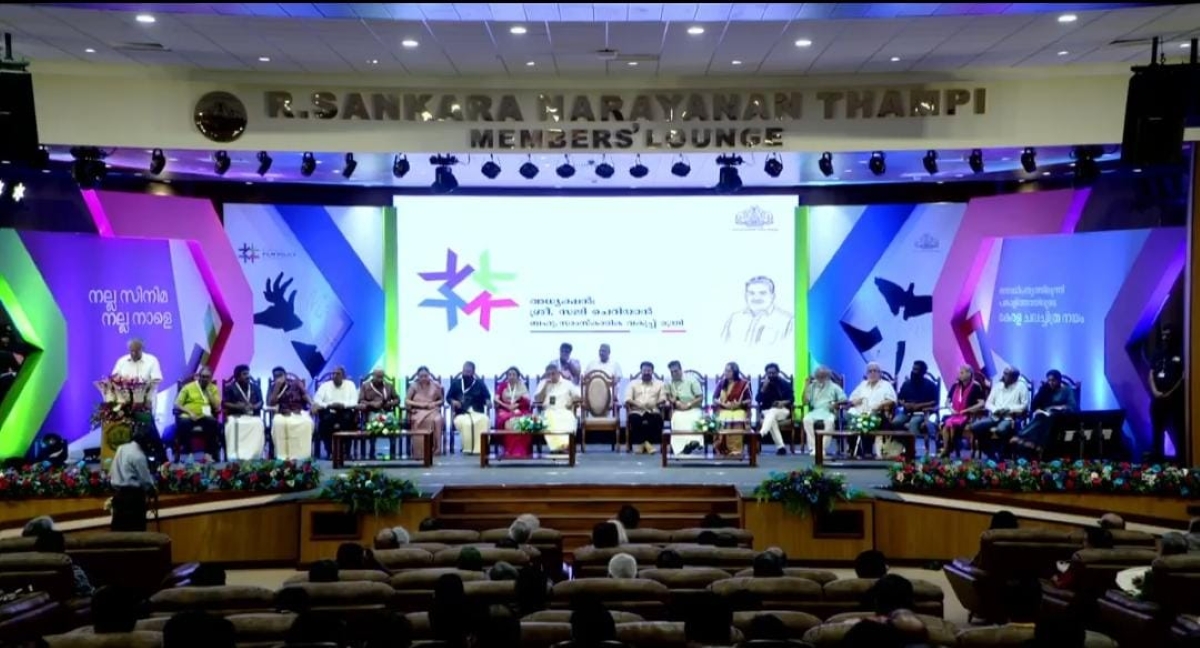The conclave, organised by the Department of Cultural Affairs, marks the state’s attempt to frame an overarching Kerala Film Policy, addressing everything from working conditions and gender inclusivity to industry regulation and creative ethics.
Published Aug 02, 2025 | 2:18 PM ⚊ Updated Aug 02, 2025 | 2:18 PM

CM Vijayan addressing the conclave. (Supplied)
Synopsis: Kerala kicked off a two-day Film Policy Conclave to reform the Malayalam film industry, with Chief Minister Pinarayi Vijayan urging ethical, inclusive practices and action against glorifying violence and drugs. The draft policy proposes blacklisting offenders, regulating auditions, enforcing POSH laws, and forming a film regulatory body. Public input and conclave discussions will help finalise the policy.
A decisive step towards reforming the Malayalam film industry began on Saturday, 2 August, with the inauguration of the two-day Kerala Film Policy Conclave at the Legislative Assembly complex in Thiruvananthapuram.
Chief Minister Pinarayi Vijayan inaugurated the event, calling for a comprehensive clean-up of the industry and stressing the need to uphold ethics, inclusivity, and safety in the film industry.
The conclave, organised by the Department of Cultural Affairs, marks the state’s attempt to frame an overarching Kerala Film Policy, addressing everything from working conditions and gender inclusivity to industry regulation and creative ethics.
Renowned actors Mohanlal and Suhasini Mani Ratnam were the chief guests at the inaugural session, presided over by Cultural Affairs Minister Saji Cherian.
In his inaugural address, chief minister said Malayalam cinema, since its inception, has remained socially rooted and contributed significantly to Kerala’s cultural and intellectual progress. “While many Indian films began with mythological narratives, Malayalam cinema from the outset told stories of social relevance, beginning with Vigathakumaran and Balan,” he said.
Highlighting contemporary concerns, the chief minister warned against unchecked violence and the glorification of drugs and alcohol in films.
“Scenes of extreme violence can distort the psyche of children. Filmmakers must remember that anything becomes artistic only when it is presented symbolically,” he said, adding “Glorifying drugs is equivalent to promoting them. The government is determined to intervene, and we expect the full cooperation of the film industry.”
At the same time, some excerpts from the draft film policy also come up in the public sphere, which calls for stringent measures to address exploitation in the industry.
Key recommendations include:
The draft also emphasizes protecting whistle-blowers, mentoring newcomers, banning hierarchical work structures, and eliminating the exploitation of daily-wage workers through the appointment of commission agents.
Meanwhile, Cultural Affairs Minister Saji Cheriyan said that the draft policy will get further updated based on the ideas being generated during the conclave and based on public opinion.
Sessions over the two days will include panel discussions with industry experts, stakeholders, and legal minds to fine-tune the policy before finalization.
(Edited by Sumavarsha, with inputs from Dileep V Kumar)
